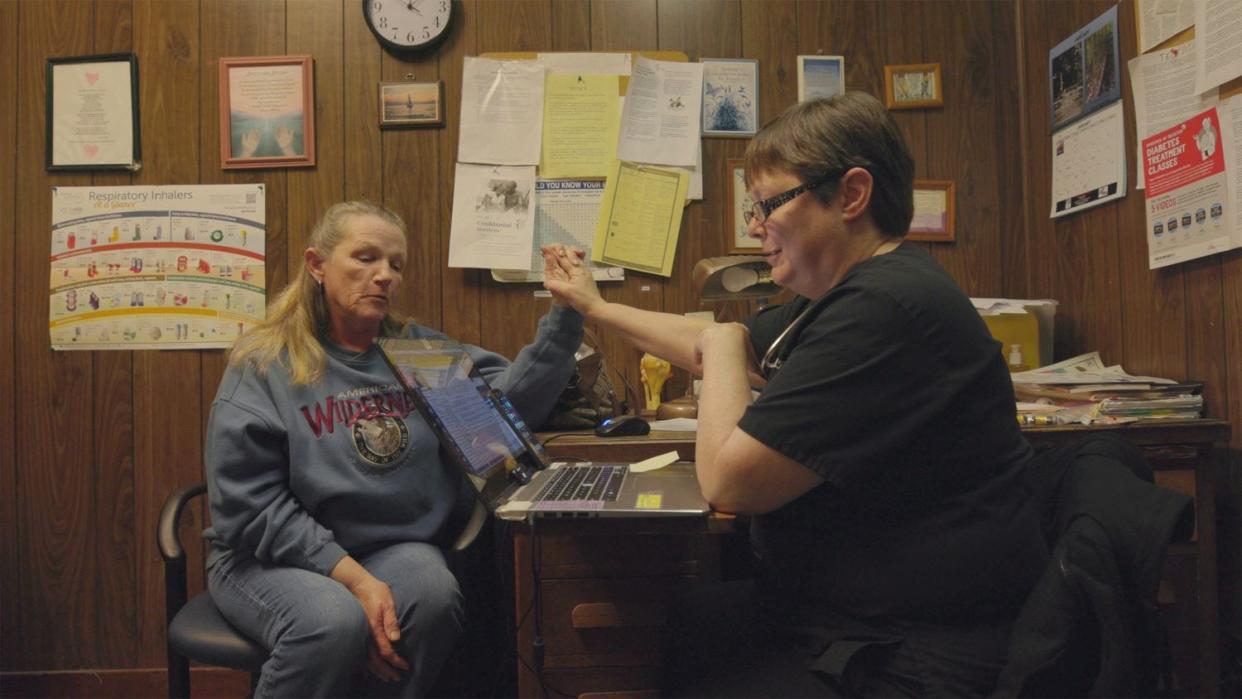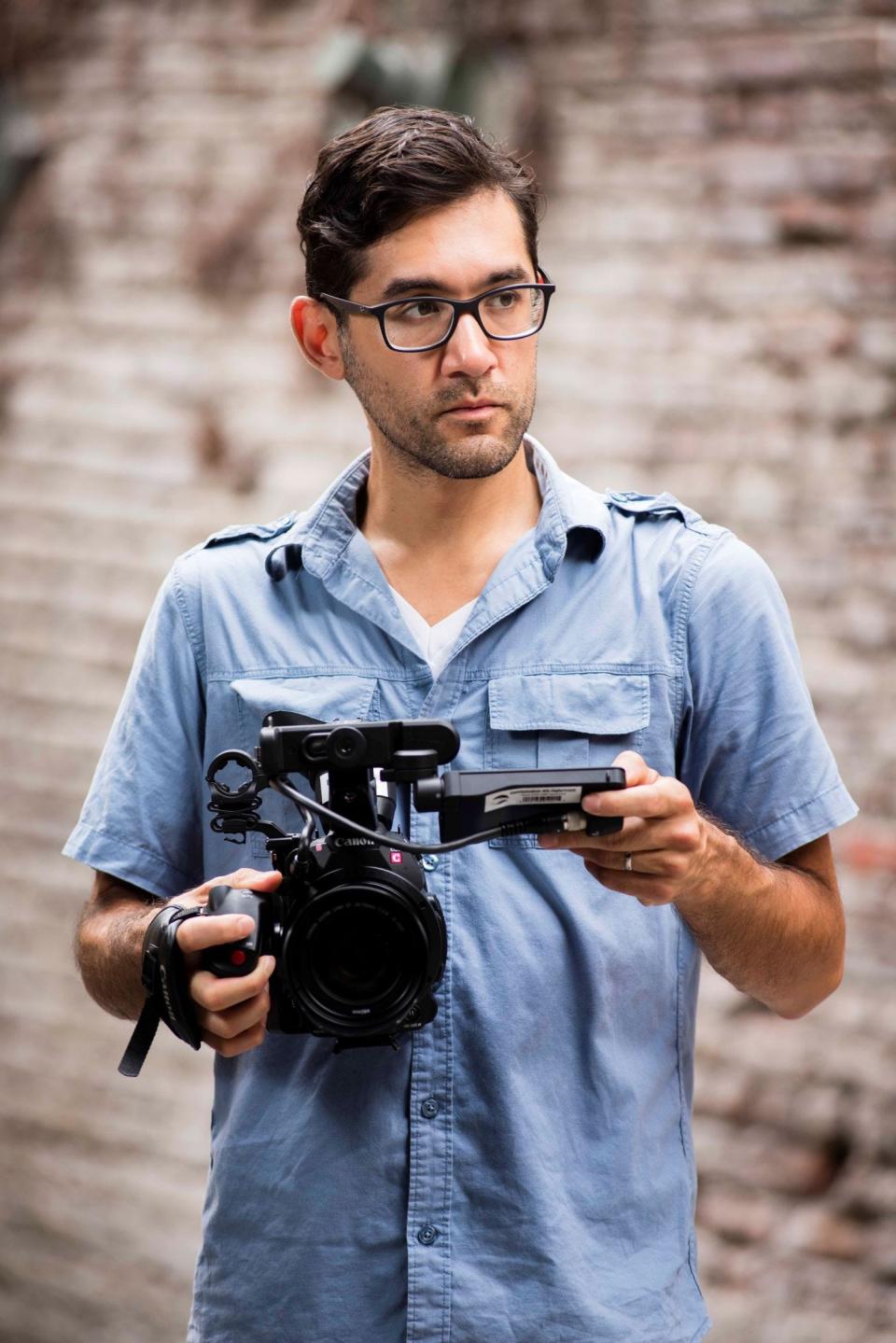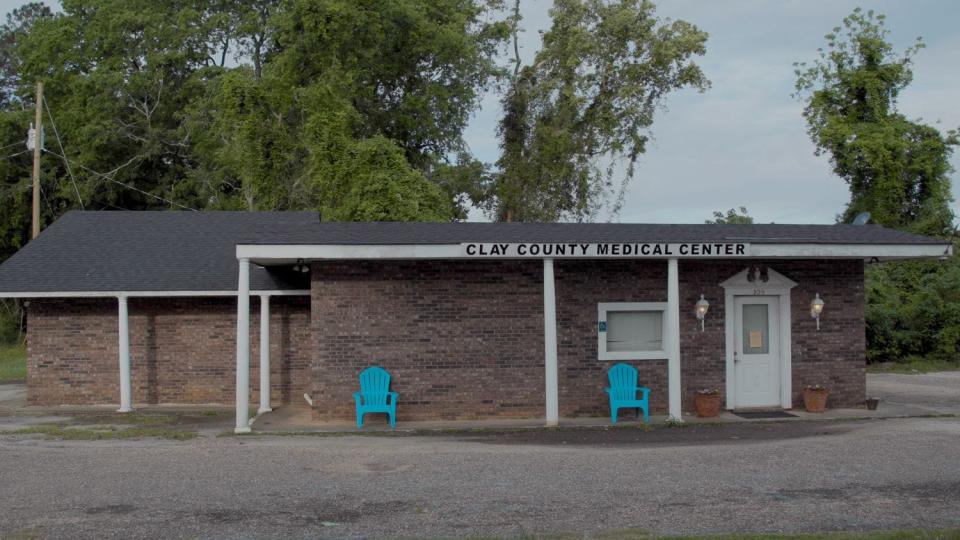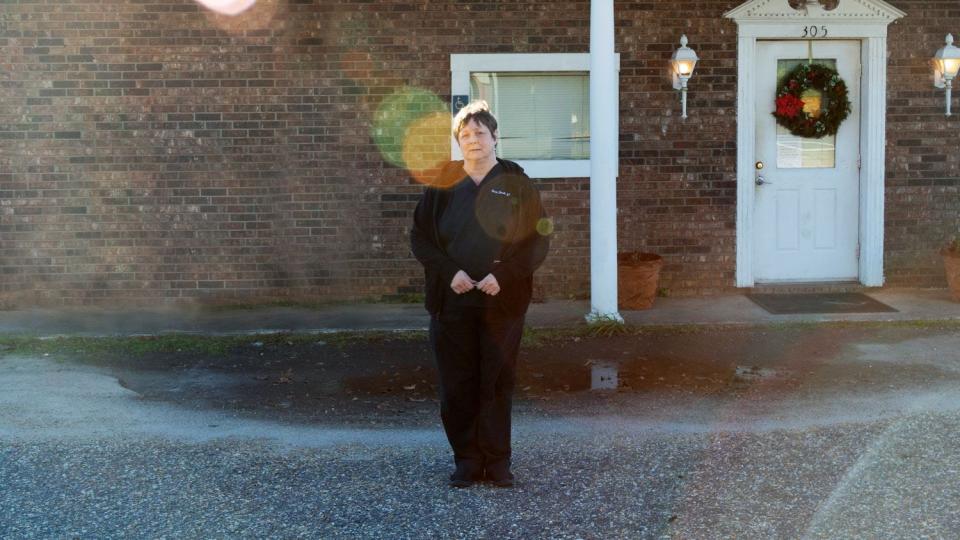Screening of 'The Only Doctor' spotlights Clay County, Georgia's sole medical provider

It was Friday the 13th at about 6 p.m. when disaster struck.
My family and I were at the annual Oatland Island Halloween Hike, shuffling with the masses through the forest along the raised wooden platforms from one candy-dispensing mascot-style animal to the next, when my 3 1/2 year old son decided to do a spin. It was an absolutely epic move, the kind of twirl that would make a professional ice skater proud. Unfortunately, he didn’t stick the landing, and ended up falling into the forest next to the walkway.
As with all kids his age, he falls a lot, so it wasn’t immediately obvious that anything was unusual. But once we pulled him out of the brush, it was clear that his left arm wasn’t quite right, and before we knew it we were rushing to urgent care, then onto the ER.
He’d fractured his elbow.
The next 24 hours were difficult to say the least. He ended up being tended to by a veritable army of nurses and, by my count, half-a-dozen doctors, and had to have surgery. By the time we returned home Saturday evening we were all exhausted, and the boy was in a cast that will cover his left arm for the next 4-6 weeks.
It was a harrowing experience, but in many ways a rite of passage: Both my wife and I experienced broken arms when we were kids, and even his best friend had already broken her leg. His prognosis for a full recovery is good.
But as I’ve considered the moment in the days since, I can’t help but wonder, ‘What if we didn’t have this kind of care available to us?’
The reality is that for many in rural communities, it’s a question they have to ask themselves all too often.
TributeL The Accomplices, Train Wrecks reunite for tribute concert to honor Larry Jack Sammons
Art on Bull: 3rd annual block party showcases region's established and emerging artists
'The limited amount of resources was shocking to me'
Just a few days before the elbow incident, I’d sat down with Savannah-based documentarian Matthew Hashiguchi to discuss his latest film “The Only Doctor,” which makes its local debut at 12:30 p.m., Oct. 27, at the Lucas Theatre as part of this year’s SCAD Savannah Film Festival. The feature-length documentary chronicles the healthcare plight of Clay County, Georgia, through the eyes of its only doctor, internal medicine special Karen Kinsell.
As I transcribed the recording of our interview in the days after my son’s accident, I was confronted by how privileged my family is to have both the resources and the means to ensure that the boy is able to get well.

“What if you have heart problems, and there’s no heart doctor?” Hashiguchi asked rhetorically. “What if you have allergies and there’s no allergist? There’s no gynecologist. There’s no dentist. Up until 2020, there was no pharmacist [in Clay County].
“This a place that is just without so [many things] that people need to improve their lives,” he added.
My son’s eventual orthopedic surgeon was one of several working on the evening we rushed him to Memorial’s emergency room. I personally spoke to three of them, and although I was a wreck seeing my little boy injured and in pain, I was also confident that he was going to receive excellent care.
But what if there weren’t two hospitals within a stones throw of my house? What if we were poor, without health insurance, without transportation? What then?
“It was so isolated, and so hidden in rural Georgia,” Hashiguchi noted. “And then when I’d drive there, I’d see things that I never thought I’d see. You’re seeing a cluster of small town after small town after small town, and seeing places that are like Clay County that were without a pharmacy or a good grocery store.”
“It was a level of poverty that I’ve never seen before,” he continued. “I’ve seen poverty in big cities; there’s poverty everywhere. But here there were no resources. There wasn’t a homeless shelter. There’s one EMT company serving all the surrounding counties. The limited amount of resources was shocking to me.”

The survival of a community on one doctor's shoulders
In a strange twist of fate, on the evening of my son’s injury, I was scheduled to interview Kinsell. In-addition to being the only doctor in the region, she is the proprietor of Clay County Medical Center in Fort Gaines, Georgia, one of two “cities” in the area, a community of just over a thousand people on the Georgia/Alabama border.
Kinsell is in her mid-60s, straightforward and open, and, Hashiguchi opined, “extremely, extremely resilient.” When we were finally able to connect a few days after our life-interrupted initial appointment, she told me a tale that was simultaneously both inspiring and profoundly disheartening.
“We definitely cater to people who are uninsured and poor, so we have a disproportionate number of them,” Kinsell explained of her client base. “We also have a disproportionate number of people who suffer from mental illness, because I have experience with that, and we can handle it. And so people either seek that out, or get rejected from so many other places that we end up being their place.”
According to the doctor, the nearest “hospital” is in Alabama, about 20 miles away. But they don’t even have a single patient computer, forcing the staff to hand write records, so the term “hospital” here means something far different than it does in a place like Savannah or Atlanta. Another 5 miles down the road there is another facility, but if you need a specialist, that’s 40 miles away, or 50 miles if you want a specialist in Georgia.
“Distance is such a barrier, and the cost of transportation,” Kinsell explained of the region she serves, where the poverty rate ranges from 25-40%. “But people really value (even if it’s a crappy relationship) their relationship with their doctor. It’s a very intimate, special relationship.”
Kinsell was too humble to say so, but Hashiguchi essentially placed the survival of the community on the aging doctor’s shoulders, and after speaking with her, it was hard to disagree with his assessment. During our conversation I asked her what her day had been like so far, and she described having a telephone conversation with a big rig driver suffering from a mental health crisis over the death of her brother, a relatively routine blood pressure checkup, and having had left several messages on another patients voicemail describing the procedures they needed to take post-operation.
She’s everything to everyone, it seems, and it’s hard to imagine what would happen were she not around.
“Everyone gets sick,” noted Kinsell. “To treat healthcare like a luxury, ‘Oh, I can afford to go to the doctors!’ That’s just not consistent with the ideas of our country or of our religion or of [an] ethical way of life. And I just struggle to understand that.”
“We try to keep things as affordable as possible, because people out here, they need money, by and large,” she added.

The unavailability of the American dream
“There were very little resources or opportunities to improve their lives,” Hashiguchi reiterated. “Here are these people trying to achieve the American dream, and that’s just not available to them.”
“The idea of it [the American dream] is almost criminal,’ he went on to say. “Because you’re given this idea that you can achieve this, and it’s so out of reach from so many people. Whether that’s because of poverty, whether that’s because of race…There’s just no opportunity for them to succeed.”
Beyond lack of healthcare provider options, the filmmaker noted that there were other barriers to good health within Clay County, important components to folks’ well-being. Playgrounds, for instance, were in short supply, and they have but a single public basketball hoop. There isn’t a real, true grocery store, in spite of the fact that it’s surrounded by the very farms that grow much of our state's fruits and vegetables. And leisure opportunities like movie houses and coffee shops are virtually non-existent.
It’s the lack of these types of services, Hashiguchi contends, that has layered mental health issues on top of the physical issues that seem so prevalent in the region.
“Something that I really observed, and this surprised me, was how poor mental health was,” he related. “I would say pretty much every single person I filmed with, they might have come in with some physical problem, diabetes, or emphysema, or something like that, but there was always an accompanying mental health issue. And they seemed to just work together. You’re mentally unwell and therefore you’re physically unwell.”
“I think they’re very isolated, so their ability to sort of escape and find outlets for joy and recreation is limited, so that compounds [things],” he continued. “And there’s no employment there, so there are people who are living off of very small amounts of money.”
Unfortunately, however, there seems little that anyone can do to fix the ever-growing concerns that plague Clay County and beyond. Kinsell believes that Medicaid expansion would help (Georgia is one of 10 states that has declined to do so, thus far), but that still won’t solve the problem of doctors generally avoiding rural appointments. And then there are still the issues of rampant poverty and lack of resources to contend with.
But “The Only Doctor” keeps coming to work, day after day, week after week, year after year, bringing care to those who need it most. She may not have the support staff that my son was exposed to during his brief stay at Memorial Hospital, but she is saving lives and doing good work.
“[Dr. Kinsell] seems to manage stress really well,” concluded Hashiguchi. “I’ve never seen her overwhelmed. She’s very stoic. People would ask me, ‘What does she do in her free time to find joy?’ But I really think she finds joy in being a doctor and helping people.”
“I think her goal is to change the world in some way,” he continued. “And she seems to consume herself with [the] mission, ‘Let’s improve lives.’ And I think she really is making a difference.”
For tickets to see “Only One Doctor” and other films from this year’s SCAD Savannah Film Festival visit filmfest.scad.edu/. There are numerous additional screenings of the film around the southeast throughout the remainder of the year, and showtimes can be found at theonlydoctor.com/screenings.
This article originally appeared on Savannah Morning News: The Only Doctor shows rural Georgia's lack of access to health care

